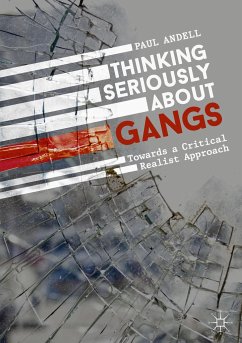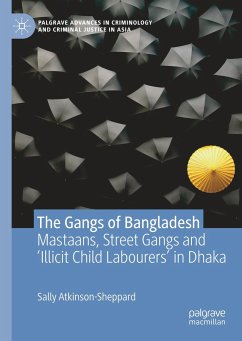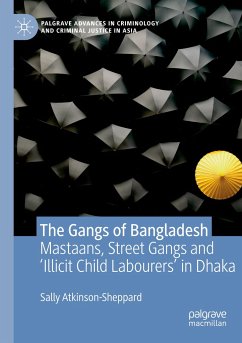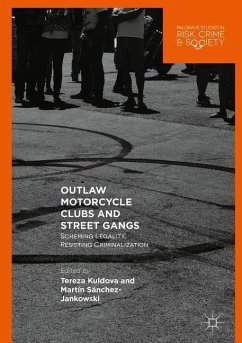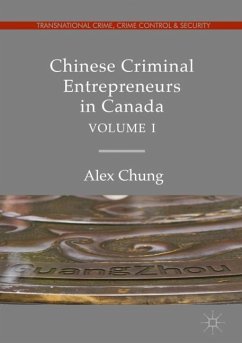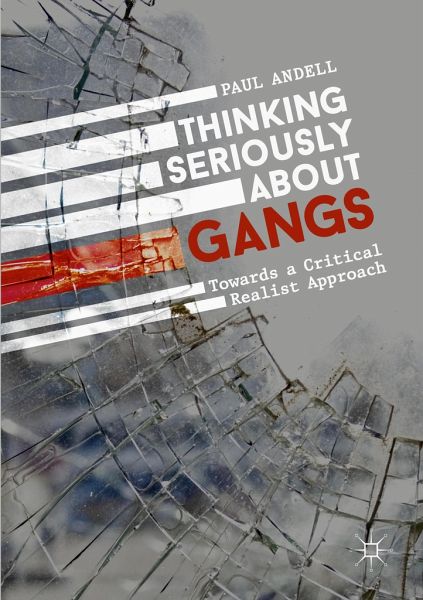
Thinking Seriously About Gangs
Towards a Critical Realist Approach
Versandkostenfrei!
Versandfertig in 6-10 Tagen
76,99 €
inkl. MwSt.
Weitere Ausgaben:

PAYBACK Punkte
38 °P sammeln!
This book examines the current debate about UK street gangs termed the 'UK Gang Thesis' debate. It argues that policy formations in the UK aimed at addressing street gangs preceding and succeeding the English riots of 2011 have encompassed positions of both gang denial and gang blame. The policy pendulum of denial and blame raises questions about where UK gang-policy stands, and which ideas and influences have framed our responses to this issue. The book will explore the UK Gangs Thesis using an analysis of empirical evidence from three sites in three English regions which encompasses periods ...
This book examines the current debate about UK street gangs termed the 'UK Gang Thesis' debate. It argues that policy formations in the UK aimed at addressing street gangs preceding and succeeding the English riots of 2011 have encompassed positions of both gang denial and gang blame. The policy pendulum of denial and blame raises questions about where UK gang-policy stands, and which ideas and influences have framed our responses to this issue. The book will explore the UK Gangs Thesis using an analysis of empirical evidence from three sites in three English regions which encompasses periods of both gang denial and gang blame. This book is an examination of the relationship between theory, policy and practice in the context of the current UK gangs-discourse, and one of the first to examine the country lines phenomena.
There is a need to formulate a less partisan analysis of gangs in the UK, and to recapture the debate from analyses which understate or overstate the gangproblem. In order to do so, Andell argues that a realist approach is needed which defines what constitutes social reality and overcomes theoretical and methodological difficulties in order to critique present formulations of gangs. This book provides this critique and makes suggestions for a more comprehensive and democratic approach to gang policy, in what can be termed a critical realist approach to gangs.
There is a need to formulate a less partisan analysis of gangs in the UK, and to recapture the debate from analyses which understate or overstate the gangproblem. In order to do so, Andell argues that a realist approach is needed which defines what constitutes social reality and overcomes theoretical and methodological difficulties in order to critique present formulations of gangs. This book provides this critique and makes suggestions for a more comprehensive and democratic approach to gang policy, in what can be termed a critical realist approach to gangs.





